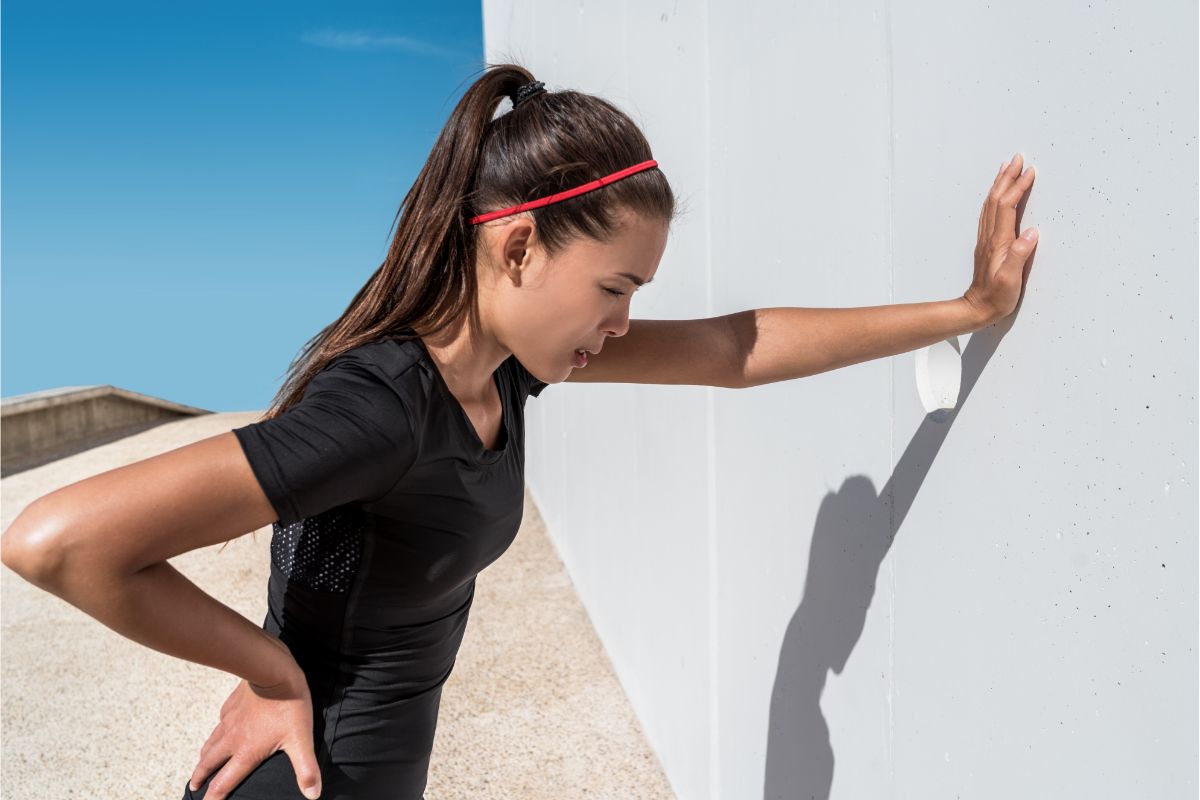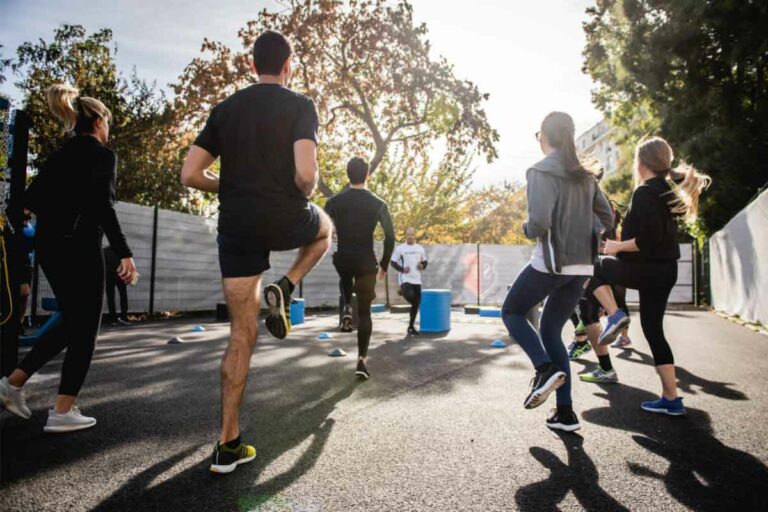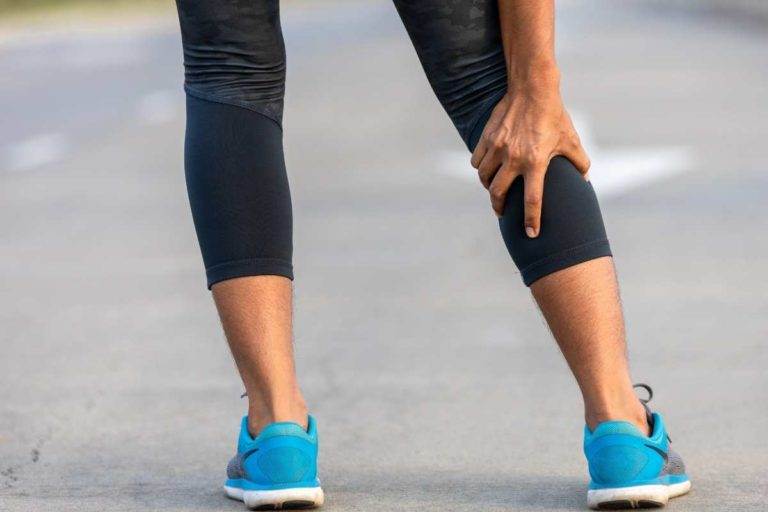Breathing Difficulty While Running? Why Do I Struggle to Breathe?

It is pretty common to experience BREATHING difficulties while running. But you can train your breathing to reduce shortness of breath.
Although becoming breathless is to be expected when you are a beginner, it can be confusing and frustrating when you have been running for a while.
It is normal to run out of breath easily when you run (especially when pushing harder):
- Each person experiences this differently. Usually, it feels like you can’t catch your breath.
- Warm up properly to help prevent shortness of breath.
- Use correct breathing techniques – use full lung capacity when you are on the run.
- Stop if breathing does not improve when you slow down your pace.
- If you experience severe shortness of breath, consult your doctor.
Running out of breath when you are running isn’t always an indicator of cardiovascular health. There are many reasons why you might be struggling to catch your breath during a run.
In this article, we will look at the reasons why you get out of breath easily when running and how to improve your breathing.
Why Do I Struggle to Breathe When Running?
There are a few factors that can contribute to running out of breath while you are running.
It is important to pay attention to this, particularly if it isn’t common.
There may be an underlying health condition that you should get checked out by a doctor.
1. You Haven’t Warmed Up
One of the most common reasons why a runner gets out of breath easily is because they haven’t warmed up properly.
If you jump STRAIGHT into a run without ADEQUATELY preparing your body, you can get into “oxygen debt”.
This means that your body cannot get enough oxygen to your muscles to keep them working properly for the activity.
This lack of energy can leave you panting and gasping as your body tries to reclaim the oxygen that it is sending to your muscles.
It is easy to avoid this type of breathlessness by ensuring that you complete a proper warm-up before starting your run.
2. You Have An Infection
This is a less common reason for experiencing breathlessness during a run, however, it is important.
For runners, one of the first signs of getting sick is increased breathing difficulty on the run.
Before headaches or sore throats develop, our LUNGS can tell us that we are unwell.
This is particularly true in the case of chest infections. If you are SUDDENLY experiencing shortness of breath on your runs and it is out of the ordinary for you, this could be the cause.
It is important to rest and take on lots of fluids to help your body fight the infection.
You should visit your doctor to confirm the chest infection and to get antibiotics if they are necessary.
3. You Run Too Soon After Eating
When we consume food, about 70% of our total blood volume is directed towards our digestive system in order to help our bodies digest our food.
When this happens, it means that there is only 30% of our total blood volume for other activities.
If you embark on a run too soon after eating, while your body is still digesting, you will likely experience breathlessness.
When you only have 30% blood volume to carry oxygen to your muscles, your “oxygen debt” will be huge.
To avoid this type of breathlessness, it is important to make sure that you plan your run around your meals.

4. You Run In Hot Weather
The final reason why you might experience breathing problems when running is the weather.
When the weather is hot, the air feels thicker or heavier and it can be more difficult to breathe while doing normal activities.
However, when you run in hot weather, your blood has to work a lot harder. As temperatures rise, more of your blood travels through vessels close to the surface of your skin.
This helps you to keep cool. Because the blood near the surface of your skin is not in your regular circulatory system, there is less blood to carry oxygen to your muscles.
Much like running after eating, this means your “oxygen debt” will be increased. This will leave you feeling breathless quickly.
Techniques To Train Your Breath
For runners, specific breathing methods are less energy-consuming and more comfortable.
These techniques can reduce the instances of breathlessness on your runs.
1. Take Deep Breaths
A lot of people do not use their full lung capacity when they breathe. In fact, it is more common for people to only use the TOP third of their lungs.
It is important to learn to breathe deeply to improve your lung capacity and reduce breathlessness.
Taking deep breaths when you are running can help to increase your energy levels and reduce fatigue and dizziness.
It can be tricky to learn how to deep breathe while you are running. However, it is possible to do it.
Activities such as swimming can help improve your lung capacity.
2. Develop A Rhythm
Running is a rhythmic exercise. One of the best ways to prevent breathlessness on your run is to breathe in a rhythm.
The easiest way to measure and maintain a rhythm is to count your steps.
For easy runs, you can try the 3:3 pattern (breathe in 3 steps, breathe out 3 steps). Or you can try odd breathing patterns like the 3:2 pattern (3 steps in, 2 steps out).
It might not feel natural for beginners, but it is something you can try.
For medium-intensity runs, you can try the 2:2 pattern (this is probably the pattern used most).
There is no right or wrong breathing rhythm. Everyone has different lung capacity and different cadence etc.
Try out different rhythms. Don’t assume what works for others will work for you.
As long as your pace is consistent, this will manage your breathing well. If you are struggling to match your breathing to your steps and want to breathe faster, it is a sign that you need to slow your running pace.
3. Improve Posture
Maintaining a neutral posture is important when running. Not only does it help you to keep proper form, but it also helps keep your chest open.
Make sure that you are keeping your shoulders relaxed rather than letting them sit high near your ears.
If you struggle with your posture when you are running, a deep tissue massage can help relax your muscles and allow you to open your upper body more.
4. Abdominal Breathing
As mentioned above, deep breathing is important in avoiding breathing problems during your run.
Abdominal breathing is the next step in helping you run without losing your breath.
Breathing from your abdomen rather than your chest can help utilize your entire lung capacity more effectively.
You can PRACTICE this by lying on the floor on your back. Place one hand on your chest and one on your abdomen.
Pay attention to which hand moves when you breathe. Make a conscious effort to make the hand on your abdomen move when you breathe.
The Bottom Line
By improving your breathing patterns, you can run at your best. Keep your running pace slow enough to breathe easily. Carrying on a normal conversation without struggling for breath is an easy way to find that pace.
As you run, learn to tune into your breathing. Maintain a smooth, even breath. Observe how your breath changes as you run.





![How Running Changes Your Body Shape [A Runner’s Guide]](https://proudtorun.b-cdn.net/wp-content/uploads/2022/06/How-Running-Changes-Your-Body-Shape-A-Runners-Guide-768x512.jpg)
